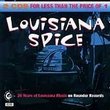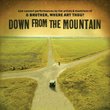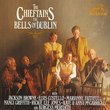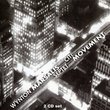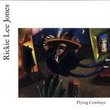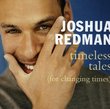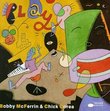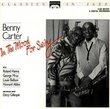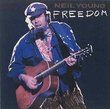| All Artists: Hal Wilner, Kevin Mahogany, Olu Dara Title: Kansas City: A Robert Altman Film - Original Motion Picture Soundtrack Members Wishing: 0 Total Copies: 3 Label: Verve Original Release Date: 5/7/1996 Release Date: 5/7/1996 Album Type: Soundtrack Genres: Jazz, Pop, Soundtracks Style: Swing Jazz Number of Discs: 1 SwapaCD Credits: 1 UPCs: 731452955425, 731452955449 |
Search - Hal Wilner, Kevin Mahogany, Olu Dara :: Kansas City: A Robert Altman Film - Original Motion Picture Soundtrack
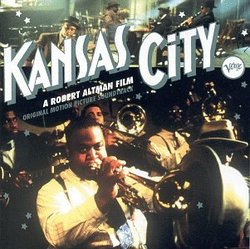 | Hal Wilner, Kevin Mahogany, Olu Dara Kansas City: A Robert Altman Film - Original Motion Picture Soundtrack Genres: Jazz, Pop, Soundtracks
Robert Altman's Kansas City is basically a 1930s gangster film, but much of the action takes place in the Hey Hey Club, a black-owned nightclub and gambling den where an all-day, all-night jam session is in progress, featu... more » ![header=[] body=[This CD is available to be requested as disc only.]](/images/attributes/disc.png?v=a4e11020) ![header=[] body=[This CD is available to be requested with the disc and back insert.]](/images/attributes/disc_back.png?v=a4e11020) ![header=[] body=[This CD is available to be requested with the disc and front insert.]](/images/attributes/disc_front.png?v=a4e11020) ![header=[] body=[This CD is available to be requested with the disc, front and back inserts.]](/images/attributes/disc_front_back.png?v=a4e11020) |
Larger Image |
CD DetailsSynopsis
Amazon.com Robert Altman's Kansas City is basically a 1930s gangster film, but much of the action takes place in the Hey Hey Club, a black-owned nightclub and gambling den where an all-day, all-night jam session is in progress, featuring such figures as Lester Young (played by Joshua Redman), Hawkins (Craig Handy), Ben Webster (James Carter), Basie (Cyrus Chestnut), Mary Lou Williams (Geri Allen), Hershel Evans (David Murray), Freddie Green (Mark Whitfield), Walter Page (Ron Carter), and Jimmy Rushing (Kevin Mahogany). Kansas City in the mid-1930s was a thriving jazz center and home to legendary bands led by Basie, Bennie Moten, Andy Kirk, and Jay McShann. The music here comes from that period and is done in that style. Producer Hal Willner and music director Butch Morris encouraged a loose atmosphere, with lots of give and take, even shouts of approval, and the musicians respond by playing for the immediate moment, rather than for some dimly imagined history. --Geoffrey Himes Similarly Requested CDs
|
Member CD ReviewsReviewed on 11/2/2009... Have thoroughly enjoyed listening to this CD. The brass band sound is very good.
CD ReviewsA successful proposal on how to re-create the past Denis L. Baggi | Lugano, Switzerland | 05/09/2000 (5 out of 5 stars) "This is an exciting and interesting Jazz CD, because it contains a proposal on how to deal with a problem that has never been entirely solved in jazz: how to re-create past music. In classical music you simply play the score, which contains more or less everything. But the essence of jazz is not in the score, but in all those non-objectifiable elements that are not in the score, namely, those collectively called "swing" (that's why the score is not the document in jazz, but only the recorded piece, which glorifies one particular instant). Hence, how do you solve the problem? Do you play ancient jazz with exactly the same sound and accents (horrible) or do you use modern tricks (maybe kitsch)? Do you repeat note-by-note the original solos or do you play new improvised ones on top of the old arrangements? There have been various attempts: for instance, Lennie Niehaus' system in Clint Eastwood "Bird" to electronically remove ancient rhythm sections and superimpose Parker's solos on new rhythm sections (interesting but terrible). Tavernier with Dexter Gordon in "Round Midnight" skipped the problem and recorded new music.In "Kansas City", instead, we have a fresh approach: that of letting modern jazzmen interpret those pieces. It is clear they pay their dues to the pioneers - the swing and freshness is there to testify this - but at the same time they are not shy about showing off their modern techniques and mastery of the overtones - especially tenor saxophonists, like Joshua Redman and James Carter, the latter being fond of mingling with the elders. Hence, it is as if they had created a virtual, parallel Kansas City of 1934, which is distinct from the real one, but claims the same letters of credit (this reviewer has embarked in the exercise of compiling a CD with the original pieces recorded in the 30's and it is worth one's while to do the comparison).Thus, also the re-created battle between Coleman Hawkins and Lester Young (with the interpreters mentioned above) has to be taken with a grain of salt: it's a fantasy, the ancient ones did not play that way, but the relationship between the two, to some degree, holds.The music is fascinating and stands on its own, but the fact that it represents an attempt of re-creating originals without neither diluting nor betraying their spirit gives to this CD an extra quality that makes it unique." Extraordinary recreation of Kansas City's heyday JEAN-MARIE JUIF | BESANCON France | 01/21/2002 (5 out of 5 stars) "This soundtrack of Robert Altman's movie is one of my favorite jazz records in the past years.Altman's genial idea for the soundtrack was to put together some of the great musicians of the nineties and let them recreate the music played in K.C. during the thirties, without trying to copy the original versions of the tunes.In fact,any of these musicians was born at that time,except David "Fathead" Newman (born 1934,Texas),who was for years a member of Ray Charles' band.
"Blues in the dark",a 1938 Basie/Rushing tune,is a tenor duel between James Carter and Joshua Redman,remembering the famous Lester Young/Coleman Hawkins tenor battles."Moten swing",written in 1932 by Benny Moten,is played with great swing and features Jesse Davis' alto sax and James Carter.The rhythm section,made of Geri Allen,Mark Whitfield,Chris McBride and Victor Lewis reminds of the imperial Greene/Jones/Page/Basie team."I surrender dear" is a tribute to Coleman Hawkins' magnificent version of May 25,1940;the young Nicholas Payton has the opportunity for a great solo,in which he sounds just like the immense Roy Eldridge."Queer notions" was written by Hawkins when he was a member of Fletcher Henderson's orchestra;the tenor solo is played by David Murray."Lullaby of the leaves" features the great piano of the beautiful Geri Allen,and efforts by Jesse Davis and trombonist Clark Gayton. "I left my baby" may be the highlight of the record;this Basie/Rushing blues is played with ferocity.After Kevin Mahogany's vocal,the band goes into a wild,down hearted playing,with shining and rough solos by Newman,Craig Handy,and the outstanding Curtis Fowlkes on trombone."Yeah,man",a Noble Sissle original,was played by Henderson's band,and features here the tenors of Handy and Redman for another tenor battle."Froggy bottom",arranged by MaryLou Williams for Andy Kirk's band,is a perfect vehicle for Geri Allen's talented touch and David Newman's blues-rooted sax."Pagin' the devil",a 1938 Walter Page/Eddie Durham blues,featured Lester Young on clarinet;Don Byron plays the blackstick here,followed by Olu Dara on cornet and Clark Gayton."Lafayette" ,a Basie/Durham tune,is the occasion for a trumpet battle,and features Payton,Dara and James Zollar . Finally,there are two versions of Duke Ellington's "Solitude";the first one features Joshua Redman,the second has solos by Don Byron,Chris McBride and Ron Carter. I hope many of you will be fascinated by this extraordinary tribute to the elders of jazz;it could have looked like a museum,with nostalgia and some dust;but it appears like a pure moment of madness and swing and youth too.Just sit down at the Hey Hey Club and enjoy beeing back to the mythic K.C. !" |

 Track Listings (12) - Disc #1
Track Listings (12) - Disc #1